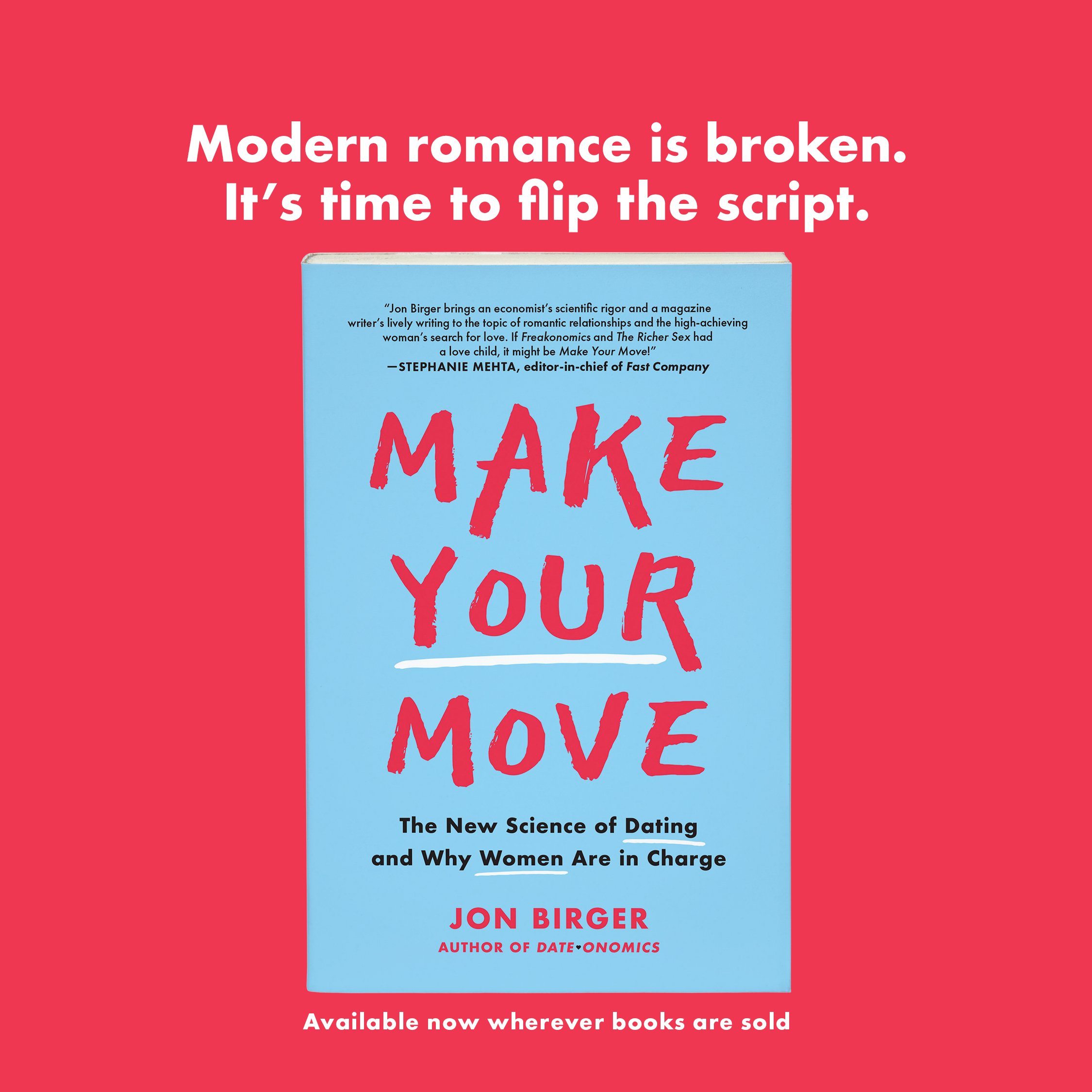Jon Birger is an award-winning magazine writer, a contributor to Fortune, dating expert, and the author of Date-onomics: How Dating Became a Lopsided Numbers Game. Named to AlwaysOn Network’s list of “Power Players in Technology Business Media,” Jon is a former senior writer at both Fortune and Money. His work has also appeared in Barron’s, Bloomberg BusinessWeek, New York Magazine, The New York Post, Time, and The Washington Post. He’s a familiar face and voice on television, radio and the lecture circuit too, having been a guest on ABC’s Good Morning America, BBC World Service, CNBC, CNN, MSNBC, National Public Radio, and Fox News—and a featured speaker at The Cato Institute, University of Kansas, MarketWaves, and South By Southwest. A graduate of Brown University, Jon lives with his family in Larchmont, N.Y.

Date Onimics, Why Love is a Numbers Game and How to Play It
It’s not that he’s just not that into you—it’s that there aren’t enough of him. And the numbers prove it. Using a combination of demographics,











